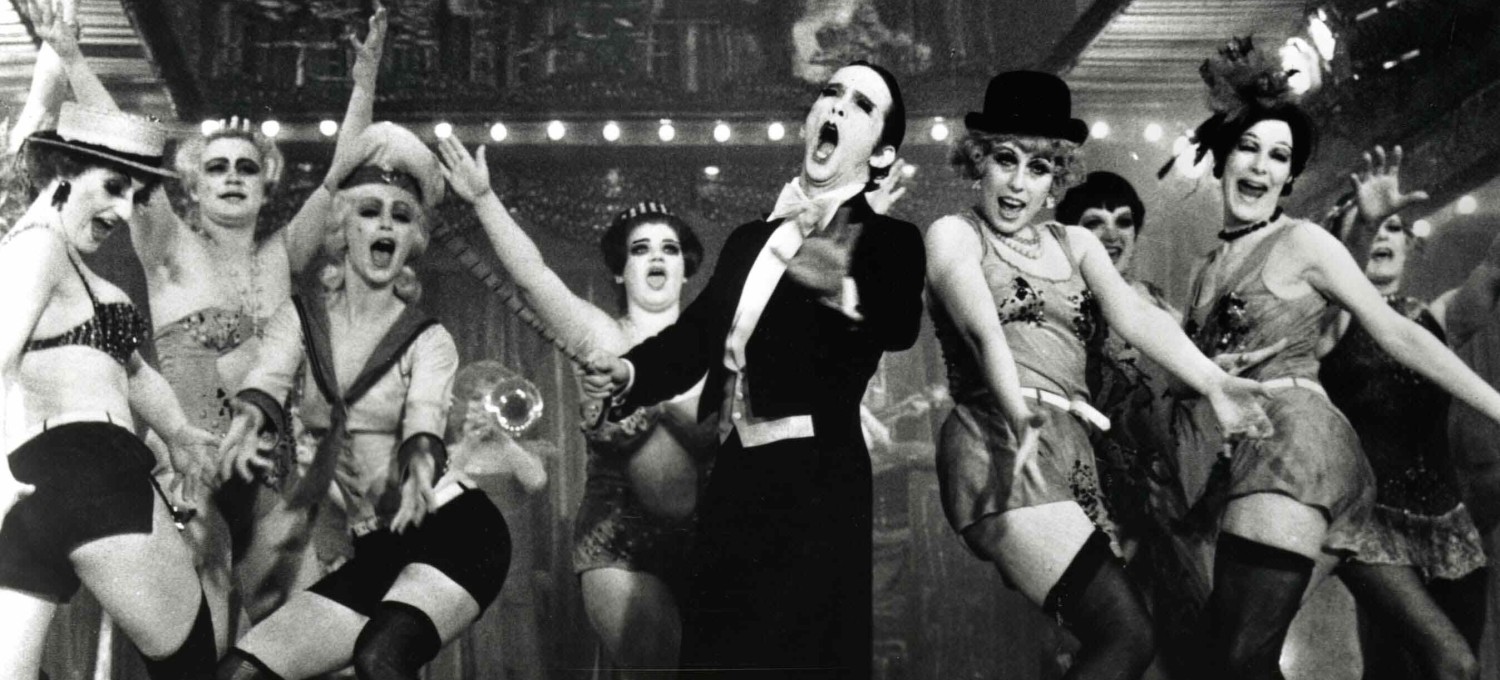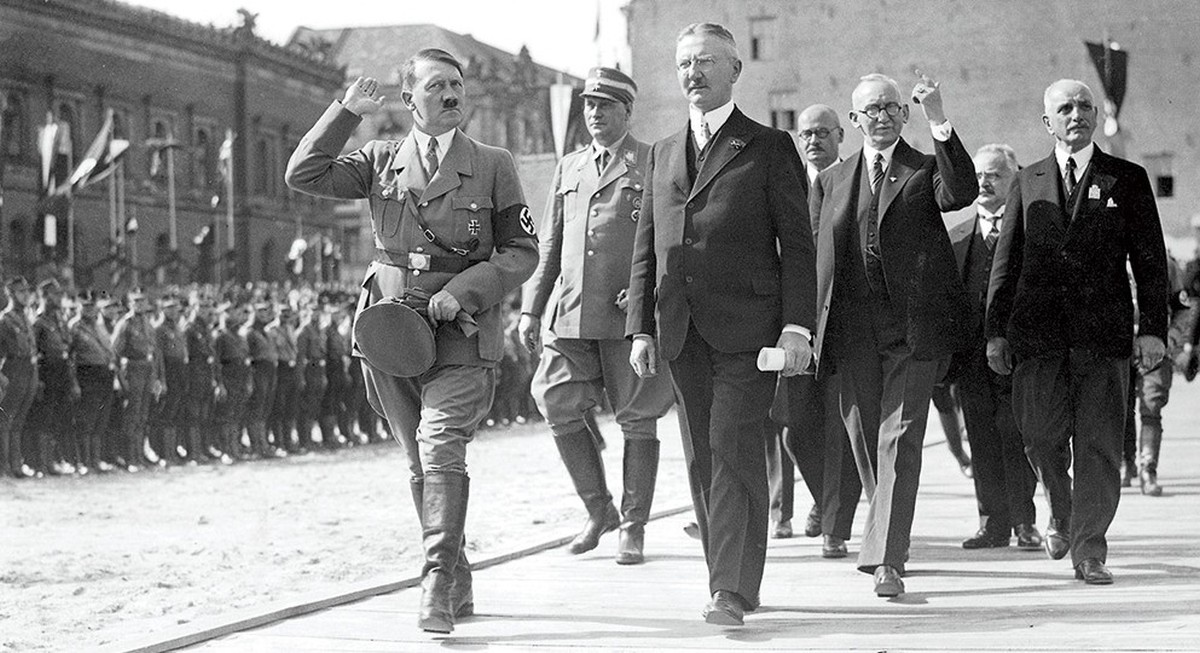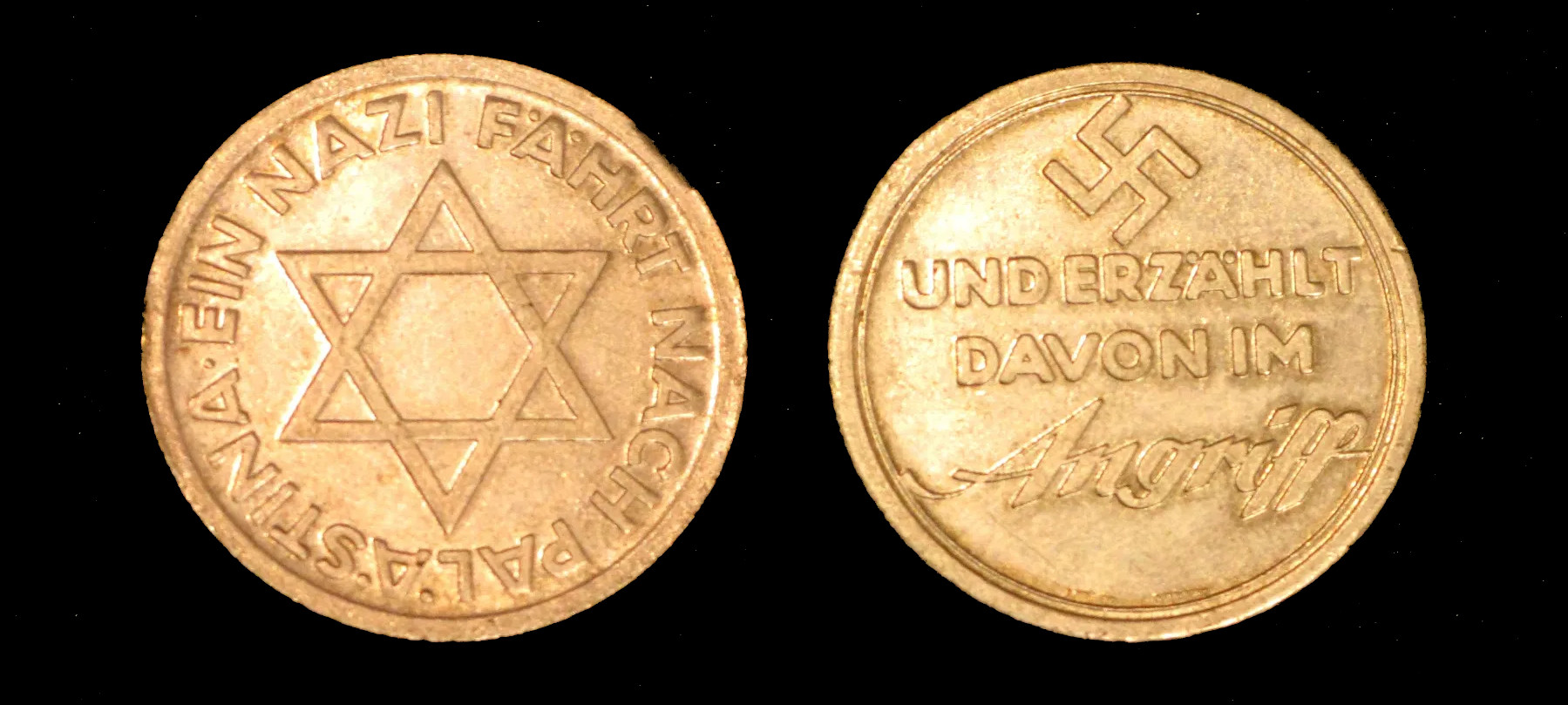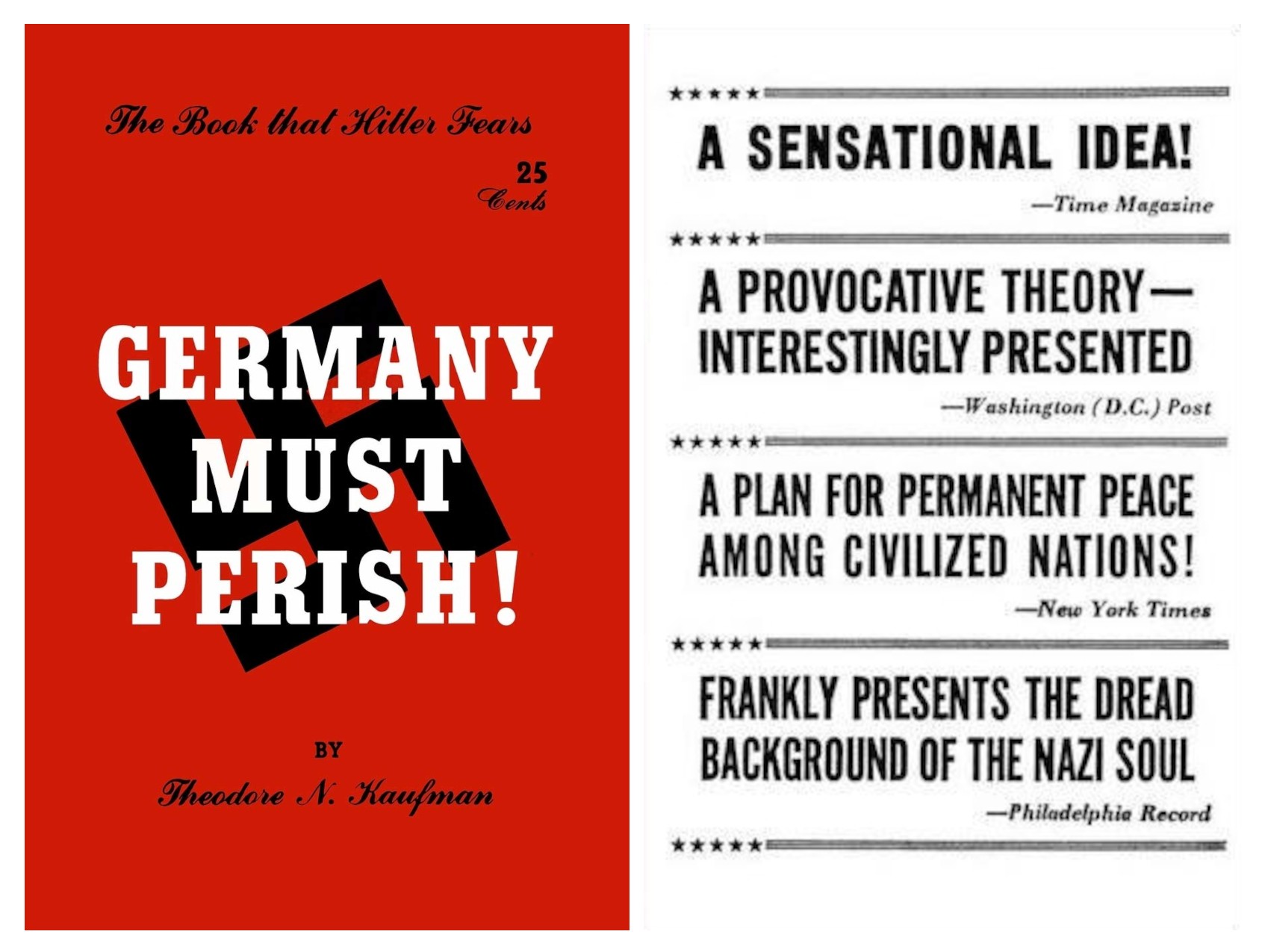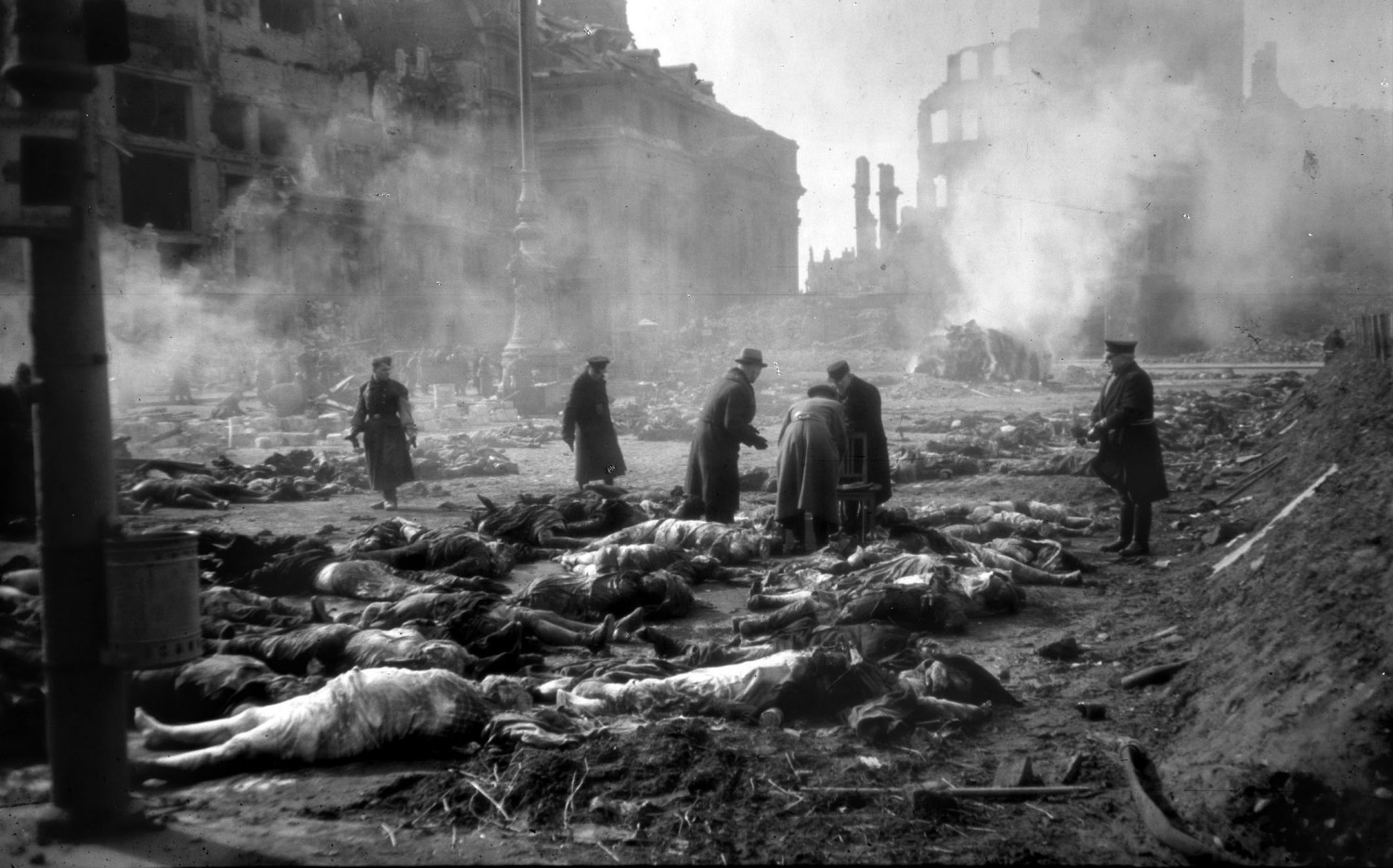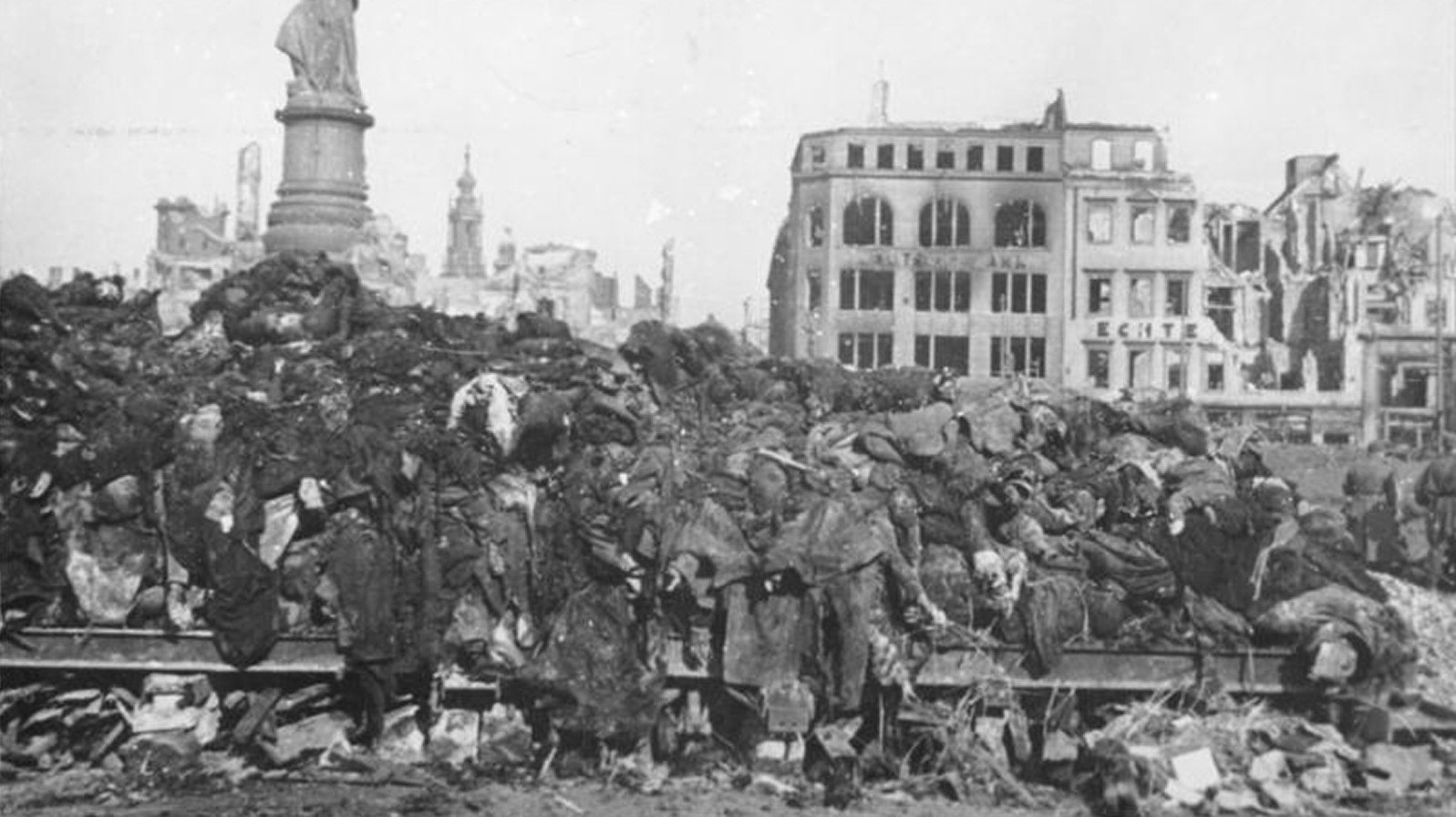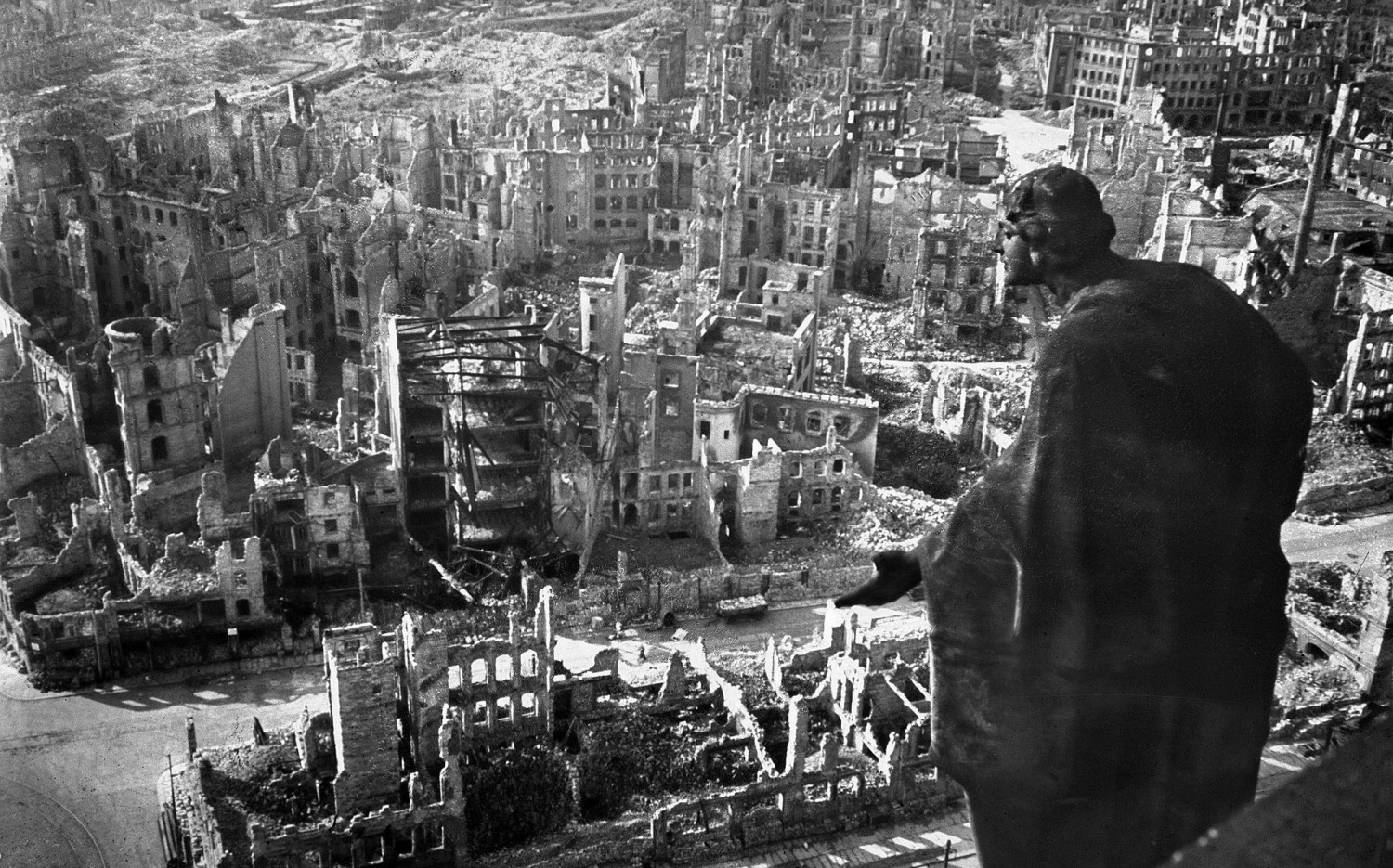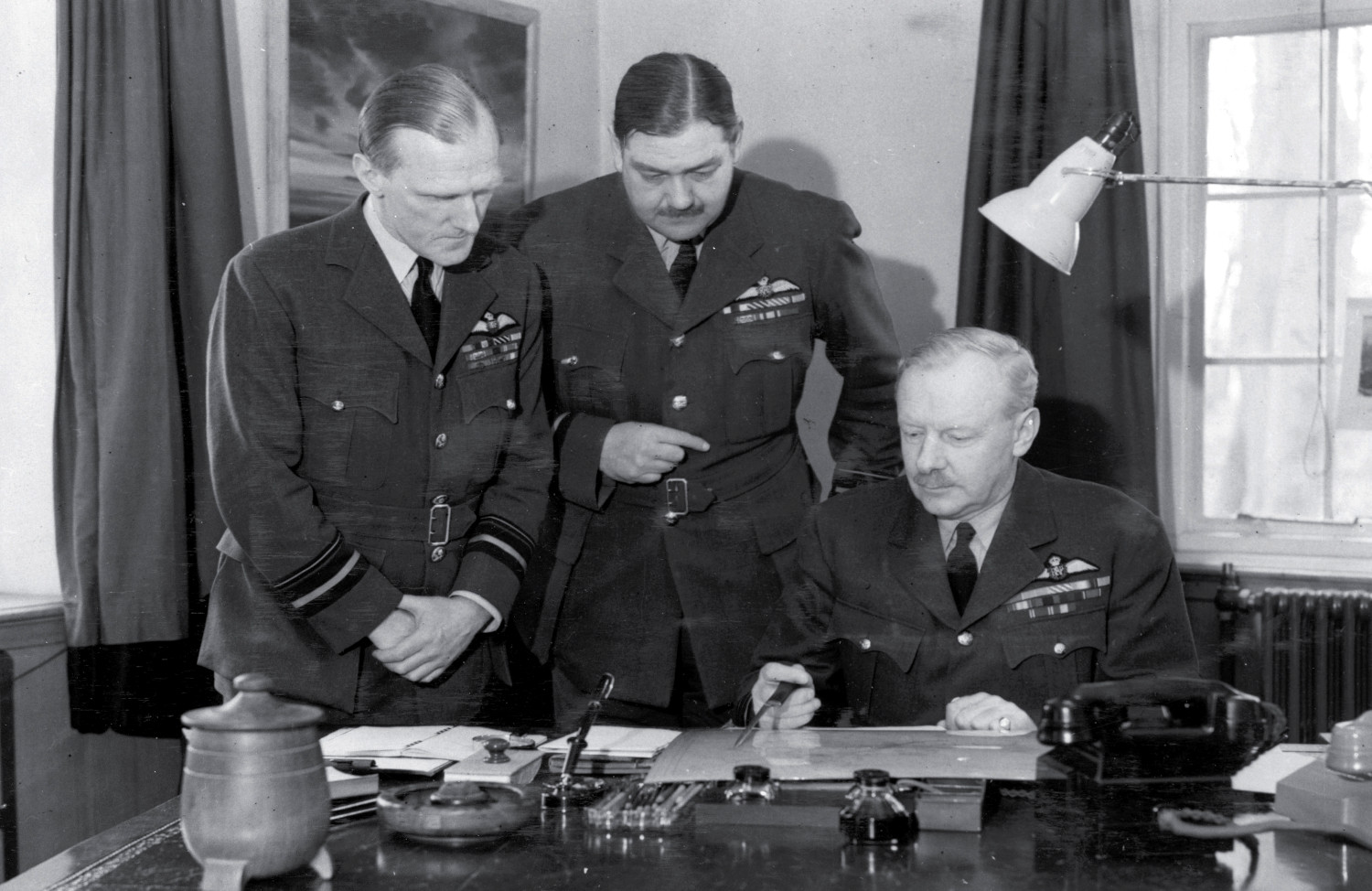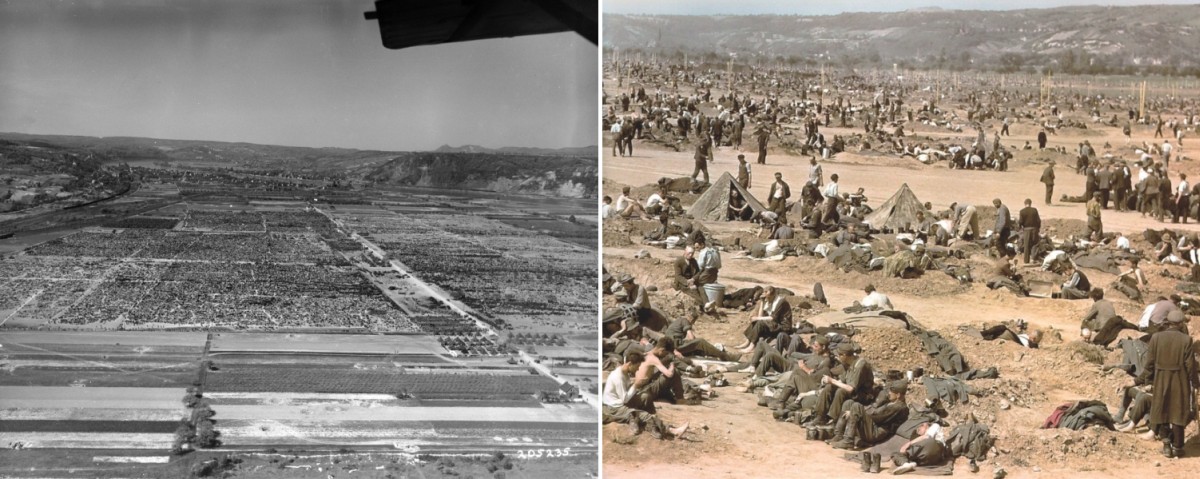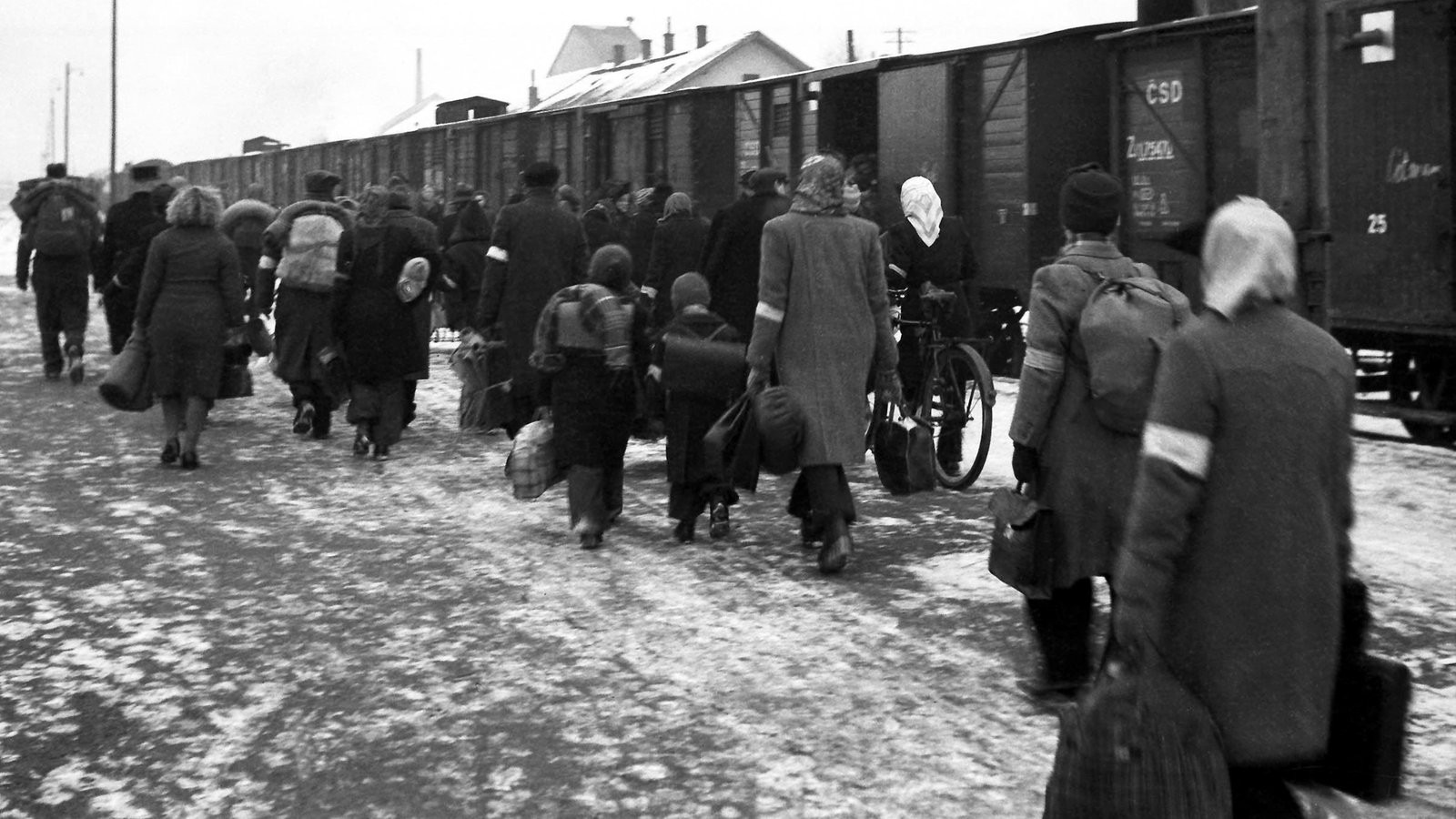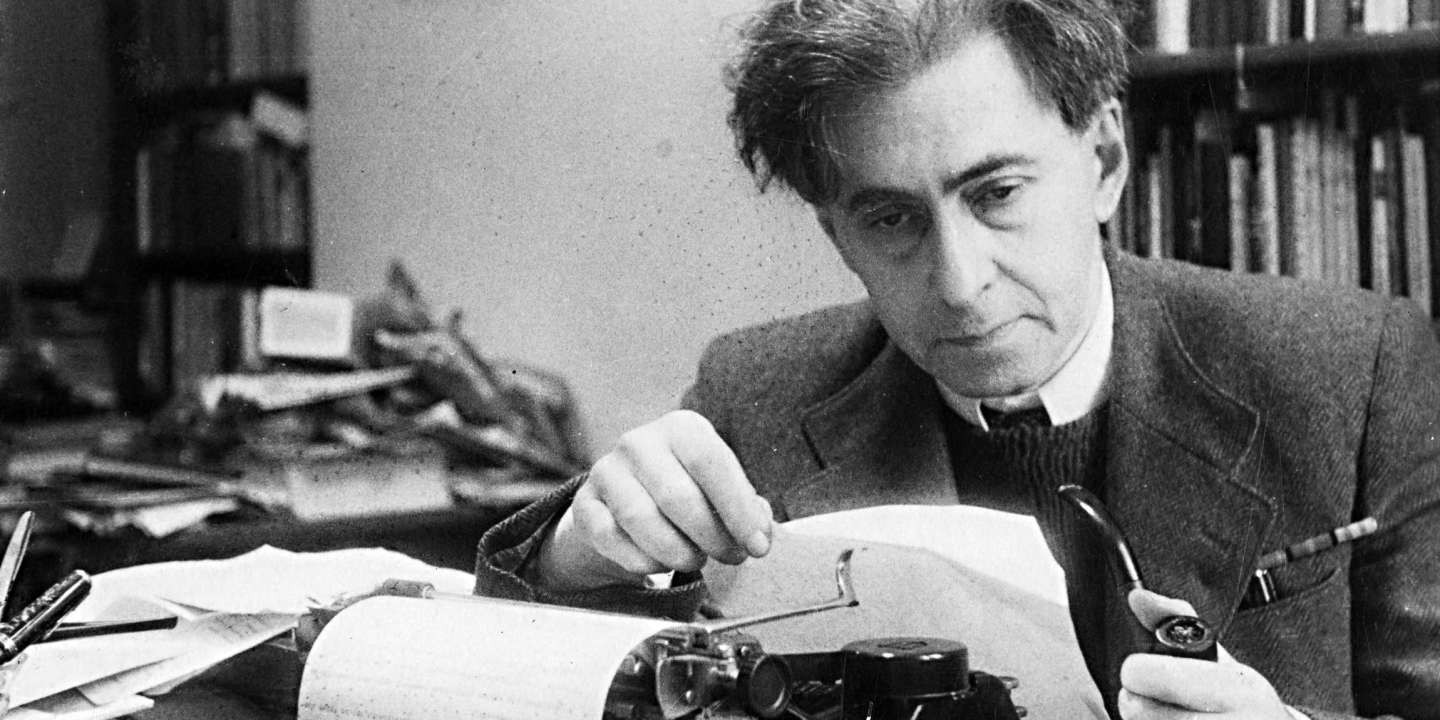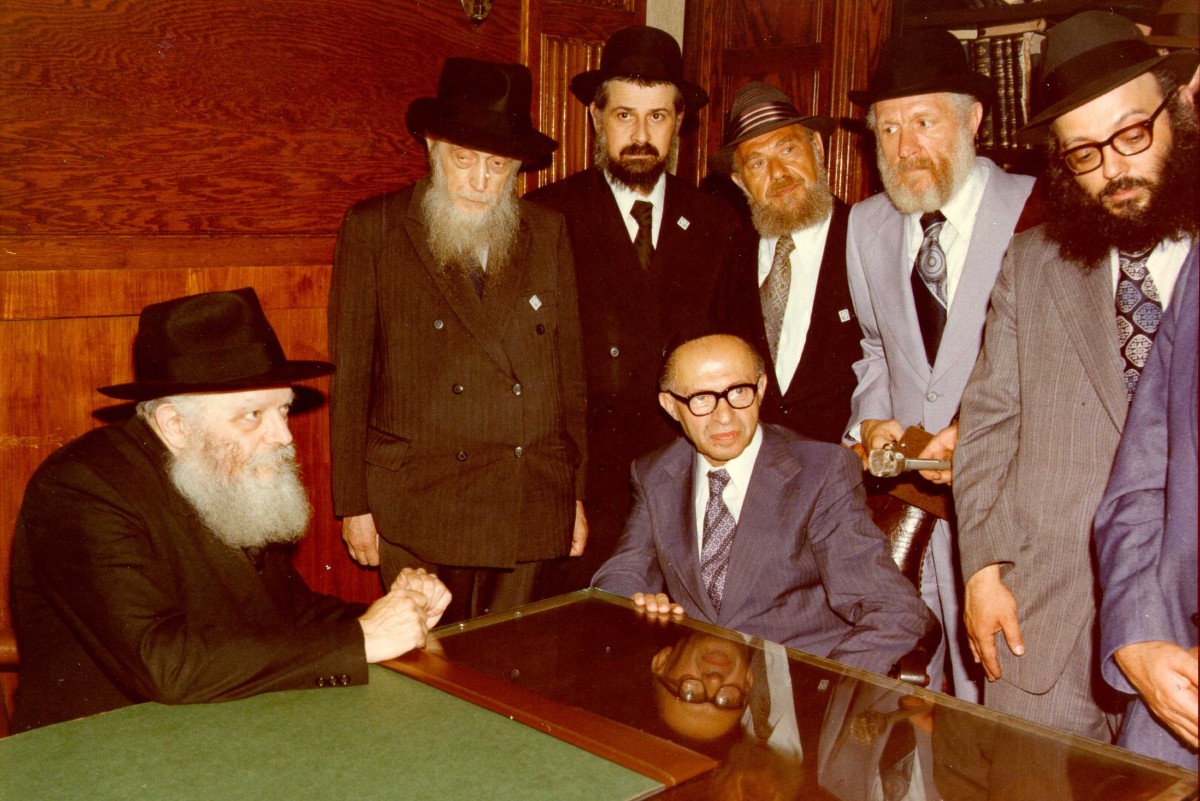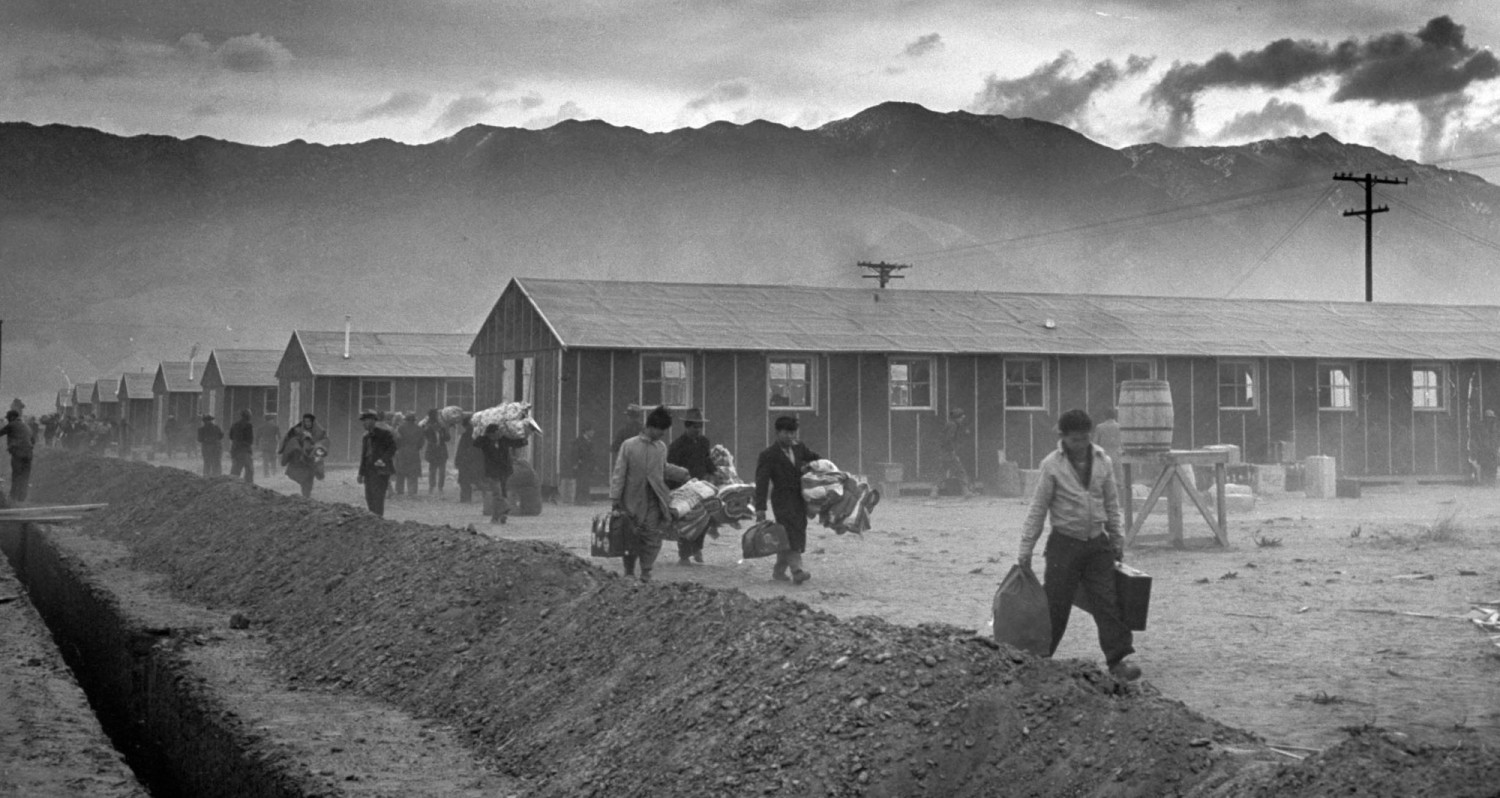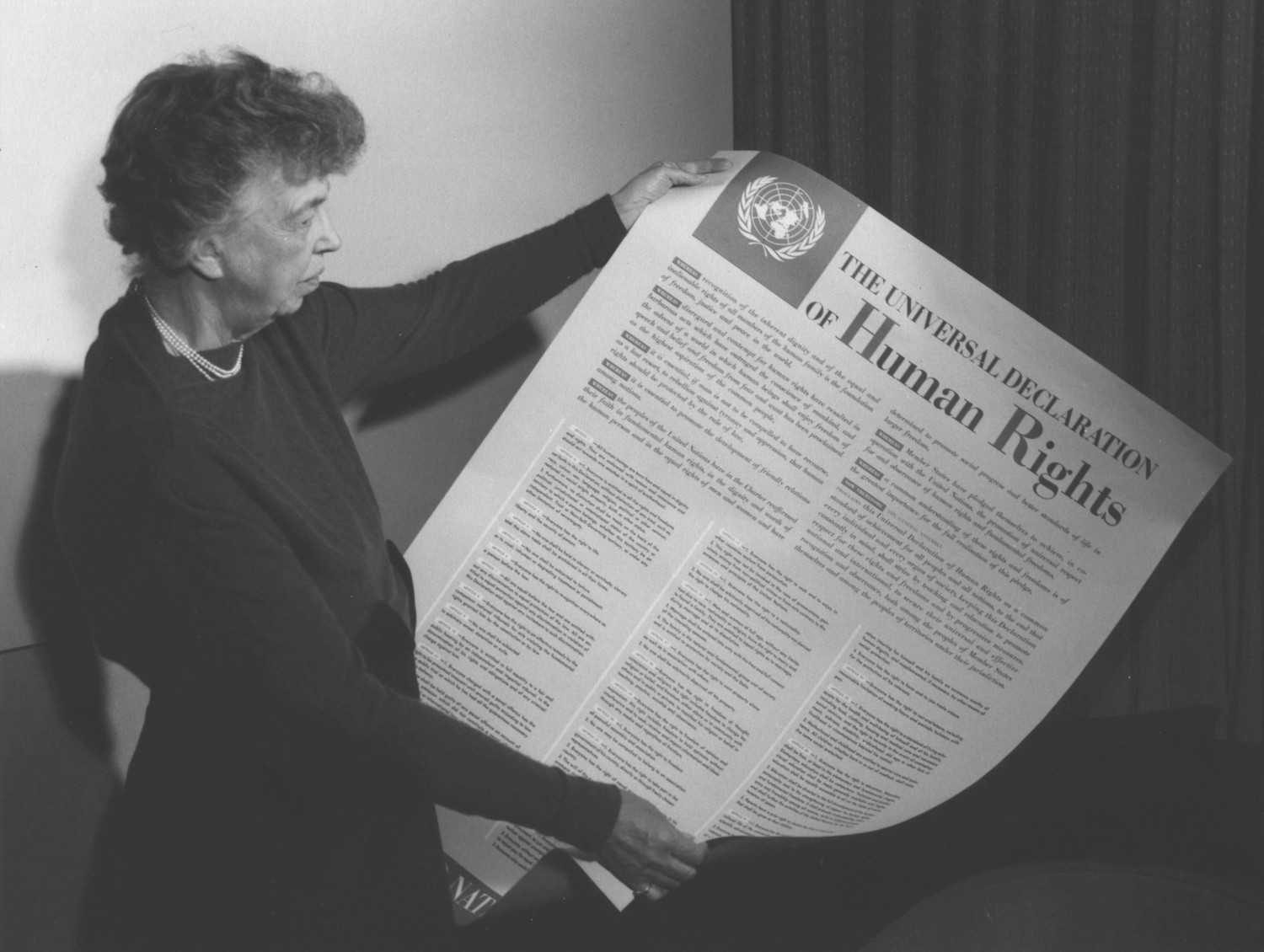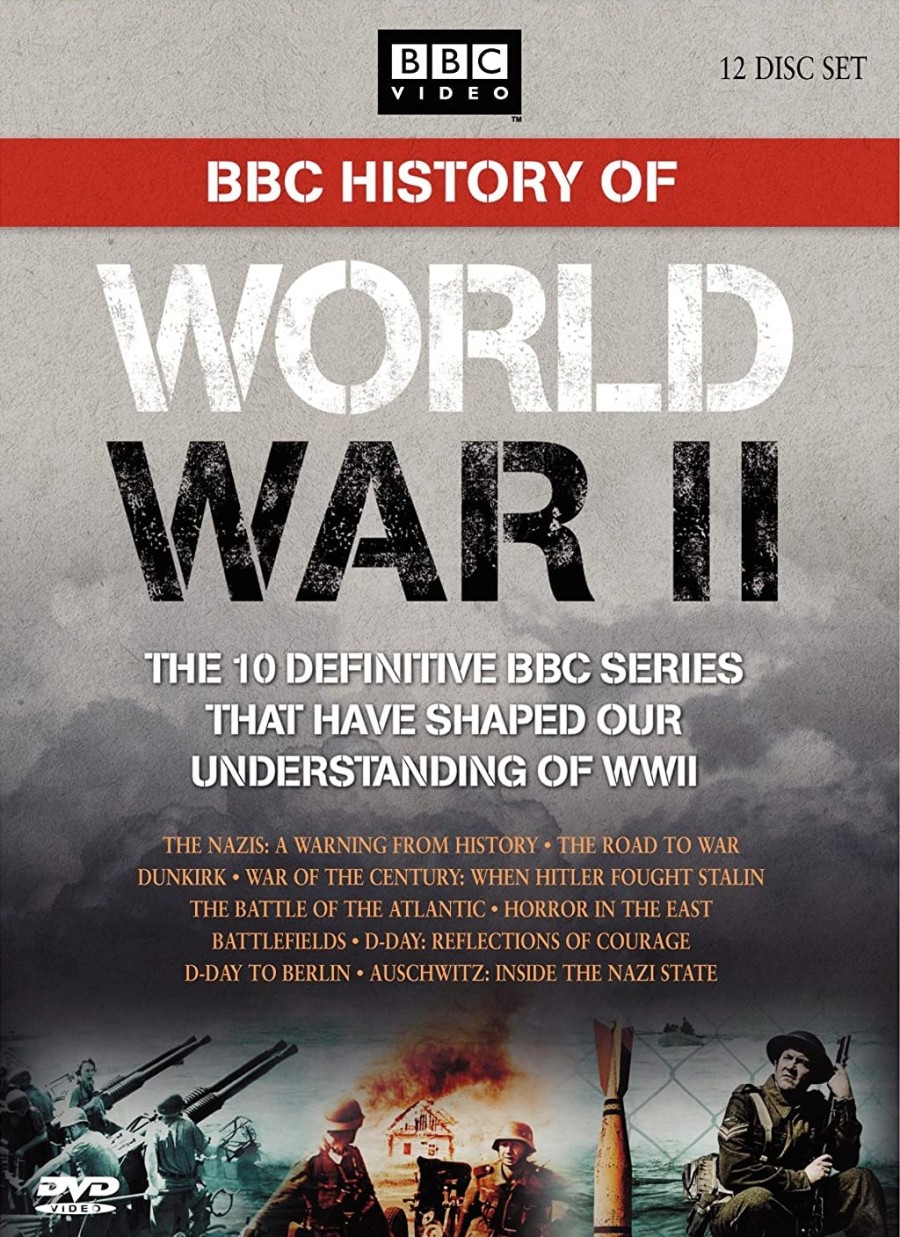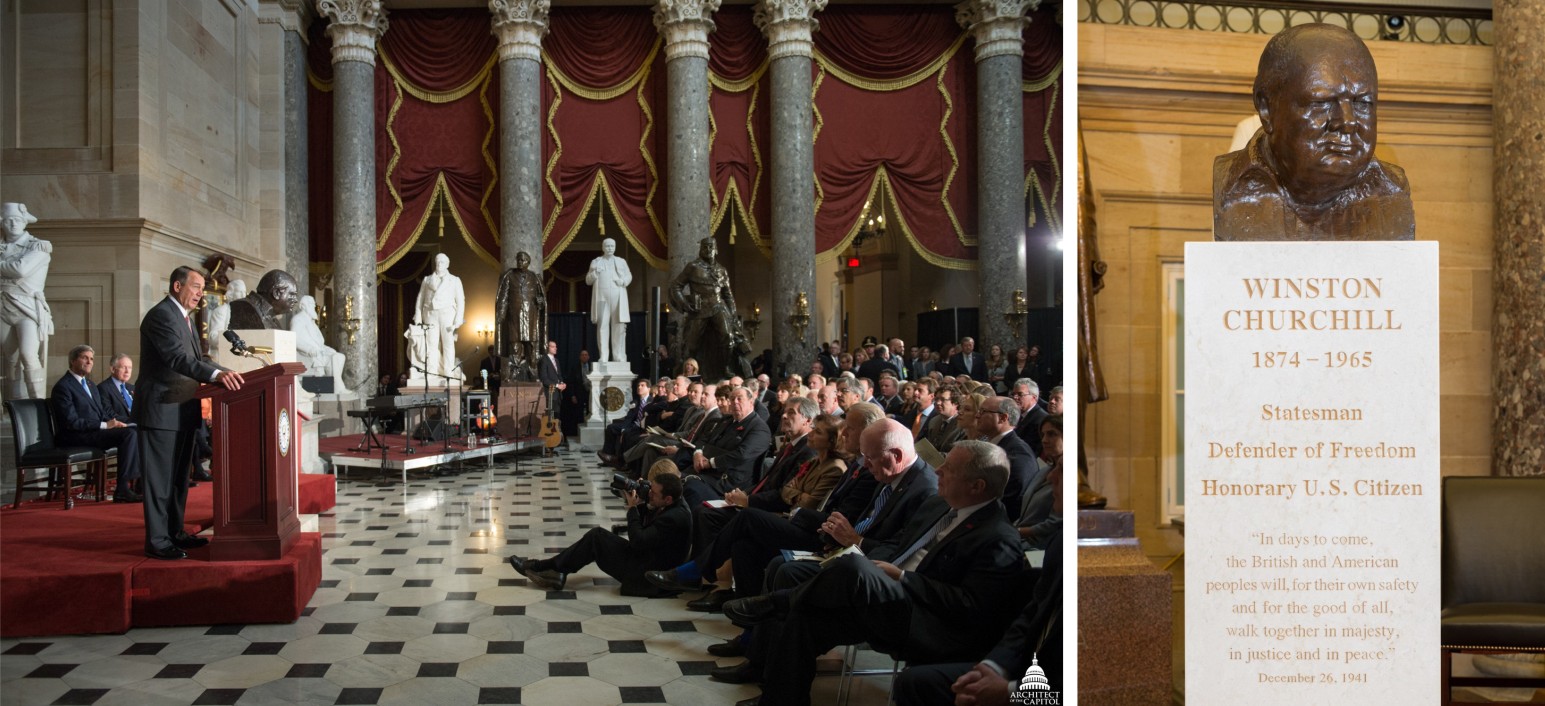World War II
Total war means total business
By placing the burden of war guilt entirely on Germany, imposing harsh reparations payments and creating an increasingly unstable collection of smaller nations in Europe, the treaty would ultimately fail to resolve the underlying issues that caused war to break out in 1914, and help pave the way for another massive global conflict 20 years later.*
World War II was a consequence of World War I. The "peace" Treaty of Versailles was set up in 1919 by the Anglo-American power elite directly after World War I and led to a decade of economic woes, including hyperinflation in the mid-1920s.
While the delegates of the Allies making the treaty should have been worried about the future of Europe, they allowed themselves to become preoccupied with worries about borders, power, and making Germany, as weak as possible. The Treaty of Versailles, signed on June 28, 1919, was supposed to create peace, but in the end all it created was another disaster. The treaty forced Germany to lose territory, caused serious economic problems which were only worsened by the depression of the 1930s, left thousands of Germans outside of Germany, and all of these things created German resentment towards the Western world. The effects of the Treaty of Versailles weakened Germany's government and that, along with all of the effects, allowed for the rise of fascism and Hitler in Germany after World War I. All of these factors added up to the beginning of World War II and they were all caused by the Treaty of Versailles. The Treaty of Versailles was the major cause of World War II.
The Anglo-American power elite wanted to ruin the German economy completely. And with the German economy they ruined the lives of the German people. In 1934 even Jan Smuts, a friend of the British elite, said in a speech...
While one understands and sympathizes with French fears, one cannot but feel for Germany in the position of inferiority in which she still remains sixteen years after the conclusion of the War. The continuance of her Versailles status is becoming an offense to the conscience of Europe and a danger to future peace.
Dividing Europe in smaller countries with this "peace" treaty is an example of the tactic divide and rule. Key figure of this treaty was David Lloyd George who was also key in creating the Balfour Declaration during World War I in cooperation with the Rothschild family. The Rothschild family is one of the richest families on earth and in control of large part of the banking world and a culprit of Zionism which pushed for the creation of Israel which was another step in dividing and controlling the Middle East.
Zionist Weimar Germany (1919 - 1933)
A new era in the history of German Jewry began when Imperial Germany collapsed and was replaced by the democratic regime of the Weimar Republic. The outstanding feature of this period was the polarization between the unprecedented integration of the Jews in every sphere of life, and the growth of political anti-Semitism among various organizations and political parties, especially in the immediate postwar years.
A snapshot of Berlin between the world wars includes nudist magazines devoted entirely to children; glittering cabaret shows parading acres of sweaty, perfumed female flesh; and an endless supply of cafes, bars and private clubs catering to gay men, transvestites, lesbians and sadomasochists. Inflation is so rampant that the local paper currency is good only for toilet paper. Cocaine, morphine and opium are peddled on every street corner. And more than 120,000 desperate women and girls of every age and stripe sell their bodies for a pittance, including mother-daughter prostitution teams and brazen streetwalkers well into the third trimester of pregnancy.*
Weimar Germany was characterized by decadence and crime. Although a small minority, Jews had relatively much influence in Weimar Germany. It is widely known that Jewish elite held, and still hold, important powerful positions in the media and banking world for example. Most of those Jewish elite were also Zionists. Many Germans were dissatisfied with the situation. The Nazis made use of that...
Hitler comes to power (1933)
The Nazis seized power by means of for example the Enabling Act of 1933 which followed the Reichstag Fire Decree and they made an end to the Weimar Republic.
Hitler appointed German economist and banker, Hjalmar Schacht, as President of the Reichsbank and Minister of Economics. Schacht, in turn, launched a groundbreaking fiscal stimulus program that rebuilt the nation's worn infrastructure and put millions of people back to work. At the same time, Schacht took steps to strengthen the currency, jettison the gold standard, and impose capital controls, all of which served to reinforce Germany's economic independence.*
Through an independent monetary policy of sovereign credit and a full-employment public-works program, the Third Reich was able to turn a bankrupt Germany, stripped of overseas colonies it could exploit, into the strongest economy in Europe within four years, even before armament spending began.*
The Nazis were the only "hope" for a hopeless Germany. Hitler and the Nazi Party came to power and they made Germany's economy flourish again. They nationalized key industries.
Germany issued debt-free and interest-free money from 1935 on, accounting for its startling rise from the depression to a world power in 5 years. Germany financed its entire government and war operation from 1935 to 1945 without gold and without debt, and it took the whole Capitalist and Communist world to destroy the German power over Europe and bring Europe back under the heel of the bankers. Such history of money does not even appear in the textbooks of public (government) schools today.*
All this was of course not to the liking of the Anglo-American power elite who saw their control over Germany and its economy, imposed by means of their destructive "peace" treaty, evaporate...
Zionists declare war (1933)
In March 1933 the so-called anti-Nazi boycott took place and lasted until the end of the war. This boycott was of course sponsored by the major Zionist organizations in the world. For example the American Jewish Congress and the Jewish War Veterans called for mass protests on March 27 and the boycott.* Zionist Samuel Untermyer reported...
What we are proposing, and have already gone far toward doing, is to prosecute a purely defensive economic boycott that will undermine the Hitler regime and bring the German people to their senses by destroying their export trade on which their very existence depends.*
A "defensive" economic boycott to "destroy" the German economy and the lives of German people is not very defensive. Samuel Untermyer is linked to the powerful and influential Rothschild family.* In April 1933 the Nazi boycott of Jewish businesses started in response.
Zionism and Nazism collaborate (1933)
In this picture a little-known medal marks Nazi-Zionist co-operation in 1933*. It was created to commemorate the co-operation and support given by the Zionist Jewish Agency in helping to make Germany “Judenfrei”. It also commemorated a joint visit to Zionist Palestine by SS officer Leopold von Mildenstein and Zionist Federation official Kurt Tuchler. A series of articles on their tour, appearing under the heading Ein Nazi fährt nach Palästina * (A Nazi Travels to Palestine), appeared in propaganda magazine Der Angriff in late 1934.
The arrival of an actively anti-Semitic government provided potential positives for some of the country’s Jewish organizations. The Zionists in particular stood to benefit. The Zionist mission of building a national home in Palestine could be compatible with the Nazi interest in forcing the Jews out of Germany. In fact, as conceived by Theodor Herzl, Zionism was meant to work with anti-Semitic governments. He considered antisemitism a “propelling force” which, “if properly harnessed, is powerful enough to propel a large engine and to move passengers and goods, let the engine have whatever form it may.”*
The spring of 1933 also witnessed the beginning of a period of private cooperation between Zionism and the German fascist regime to increase the inflow of German Jewish immigrants and capital to Palestine. The Zionist authorities succeeded in keeping this cooperation a secret for a long period, and only since the beginning of the 1960's have criticisms of it been expressed here and there. The Zionist reaction has usually consisted of declarations that their onetime contacts with Nazi Germany were undertaken solely to save the lives of Jews. But the contacts were all the more remarkable because they took place at a time when many Jews and Jewish organizations demanded a boycott of Nazi Germany.*
Livingstone’s comments expanded on his claim that Hitler supported Zionism because the Nazi government signed the Haavara agreement, which facilitated the relocation of Jews to Palestine in 1933 before the Third Reich turned to mass murder and extermination.*
The Haavara Agreement was an agreement between Nazi Germany and Zionist German Jews signed on 25 August 1933. The agreement was finalized after three months of talks by the Zionist Federation of Germany, the Anglo-Palestine Bank (under the directive of the Jewish Agency) and the economic authorities of Nazi Germany.
In 2017 Ken Livingston, who mentioned this fact, was attacked and accused of "anti-semitism" by western and Zionist controlled media as is usual these days when people speak the truth about Zionism or Israel.
Zionists managed to keep the fact that they collaborated with the Nazis secret until the 1960s. Why they wanted to keep their collaboration with the Nazis secret should be obvious. Zionists benefited from World War II because it led to the creation of their desired state of Israel.
War finance
The Bank for International Settlements (BIS) ... was established in 1930 by an intergovernmental agreement between Germany, Belgium, France, the United Kingdom, Italy, Japan, the United States and Switzerland. ... The fact that top level German industrialists and advisors sat on the BIS board seemed to provide ample evidence of how the BIS might be used by Hitler throughout the war, with the help of American, British and French banks. Between 1933 and 1945 the BIS board of directors included Walther Funk, a prominent Nazi official, and Emil Puhl, as well as Hermann Schmitz, the director of IG Farben and Baron von Schroeder, the owner of the J.H. Stein Bank.*
The BIS financed Hitler's war machine. ... The BIS was founded in 1930, in effect by Montagu Norman and his close friend Hjalmar Schacht, the former president of the Reichsbank, known as the father of the Nazi economic miracle. Schacht even referred to the BIS as "my" bank. The BIS is a unique hybrid: a commercial bank protected by international treaty. Its assets can never be seized, even in times of war. It pays no taxes on profits.*
The BIS is regarded as a bank of central banks, it was created in 1930 by the presidents of the central banks of Great Britain and Germany and was used by both the Allies and the Axis powers as a secret contact point to keep the channels of international finance open. The power elite work together and run their banking cartel to finance their wars. They also installed bank secrecy in the 1930s in order to hide their corruption. In 1999 the Guardian reported that Swiss banks have long stood accused of collaborating with the Nazis, but now The Observer has uncovered astonishing evidence of how the Third Reich was helped by a financial institution much better known on the British high street... Barclays Bank.* In 1976 British professor Antony C. Sutton published a book called Wall Street and the Rise of Hitler.
With chase national bank assistance, the Nazi government earned dollars in the United States through the sale of special German marks—known as Ruckwanderer ("returnee") marks—to U.S. residents of German descent. After Hitler came to power and began to re-arm, Germany continued to import large quantities of American goods.*
See also Chase Bank (Controversies: Purchase of Nazi Germany's Reichsmarks) *. The British and American elite cooperated well with the Nazis even long after it was known what the Nazis had in mind for the Jews and other minorities.
Documents, many of which were only declassified last year, show that even after America had entered the war and when there was already significant information about the Nazis' plans and policies, Prescott Bush worked for and profited from companies closely involved with the very German businesses that financed Hitler's rise to power. It has also been suggested that the money he made from these dealings helped to establish the Bush family fortune and set up its political dynasty.*
The Bush family is known for Brown Brothers Harriman & Co. Prescott Bush was its director when it was seized by the federal government because of its ties to German industrialist Fritz Thyssen who helped bankroll Adolf Hitler's rise to power.* Bush and his colleagues routinely attempted to conceal their activities from government investigators.*
War means business and banks of course play a crucial role in this. The same goes for the corporations. Rockefeller's Standard Oil was in close business with Germany's I.G. Farben which played a crucial role in Hitler's rise to power. I.G. Farben was after the Rockefellers the next largest stockholder in Standard Oil.* Interestingly, from 1925 to 1945 Nazi Fritz ter Meer was on the board of IG Farben. He was convicted for mass murder and enslavement. After his release in 1951 he was selected as chairman of the board of directors for Bayer, a German multinational pharmaceutical and biotechnology company.
Under the Nazis, the German chemical company I.G. Farben and Rockefeller's Standard Oil of New Jersey were effectively a single firm, merged in hundreds of cartel arrangements. I.G. Farben was led, up until 1937, by the Warburg family, Rockefeller's partner in banking and in the design of Nazi German eugenics. Following the German invasion of Poland in 1939, Standard Oil pledged to keep the merger with I.G. Farben going even if the U.S. entered the war.*
Whenever big money is involved we see names popping up like for example Rockefeller or Warburg. These are some of the world's richest people which are also involved in very influential organizations like for example the Council on Foreign Relations, the Trilateral Commission and the Bilderberg Group which are used to influence world events in their favor.
source
Of course no war can be fought without massive quantities of oil. That oil is being provided by the world's leading oil companies just like all war material is being provided by the world's leading arms manufacturers. In 1907 both companies Shell and Royal Dutch merged to form Royal Dutch Shell under the auspices of Rothschild, which held an interest in the venture.* Royal Dutch Shell's Henri Deterding, who purchased Azerbaijan oil fields from the Rothschild family in 1911 *, was a "great friend of the Germans" according to Hermann Göring as noted in Stephen Howarth's A Century in Oil: The "Shell" Transport and Trading Company 1897-1997.
Zionist hatebreeding
Germany Must Perish! is a book written by Theodore Newman Kaufman, which he self-published in 1941 in the United States. The book advocated genocide through the sterilization of all Germans and the territorial dismemberment of Germany, believing that this would achieve world peace. A book hailed by western media. A quote from this book...
Today's war is not a war against Adolf Hitler. Nor is it a war against the Nazis. It is a war of peoples against peoples; of civilized peoples envisioning Light, against uncivilized barbarians who cherish Darkness.*
It's typical good versus evil Zionist propaganda rhetoric aiming at the destruction of an entire population. So, Nazis propagandizing to eliminate all Jews from Germany is wrong, but Zionists propagandizing to eliminate all Germans from the planet is okay? The Zionist hatebreeder calls Germans "uncivilized barbarians". But at that time the German civilization was the most advanced civilization on earth in many ways.
The German Empire had been ahead of the other European nations not only with regard to education, research, technical innovation, and productivity but also concerning its welfare system (the first social insurance worldwide had been introduced under Bismarck). Thus, its citizens were enjoying a high standard of living.*
A reviewer of this book at Amazon wrote...
It is amazing that it is accepted by publishers, the media and many readers to write a book about destroying an entire nation of people, as long as they are German. Yet, if such a book was written about Jews, it would be banned by publishers, attacked by the media and scorned by readers. All books of hate are disgusting! However, it is far worse when such thinking is the exclusive right of some and the crimes of another. I will keep this book available to show anyone how badly our society treats the German people.
Carpet bombing
Ethical restraints which had been imposed at the start of the war became slowly eroded as a result of Britain's decision to initiate 'unrestricted' bombing of targets located in Germany's urban areas.*
Strategic bombing during WWII often involved bombing areas inhabited by civilians and sometimes bombing campaigns were deliberately designed to target civilian populations in order to terrorize, disorganize, and disrupt their usual activities. The repeated carpet bombing of Berlin on civilian targets by the British RAF started on 25 August 1940 at the orders of Churchill after the German Luftwaffe accidentally dropped some bombs on a civilian area in London intended for attacking RAF installations the day before.* It is widely accepted that the Luftwaffe made a mistake and certainly did not intend to bomb civilian targets. But the British leadership took this opportunity to start their strategic bombing campaigns into German territory, sometimes destroying entire cities in a night. One such example is the bombing of Hamburg in July 1943, code named Operation Gomorrah...
Operation Gomorrah... resulted in the single largest loss of civilian life in one city throughout the European war. Some 37,000 people died and over 60 per cent of Hamburg's houses and apartments were destroyed by a blaze of incendiary bombs. Overy cites a German doctor who says he had to estimate the number of dead by measuring the ash left on the floor. It was only near the end of the war, and the bombing of Dresden which killed approximately 25,000 people in a few hours, that there was any kind of outcry against Allied strategy, which incidentally had failed in any way to stem Germany's production of armaments (there was a three-fold increase between 1941 and 1944).*
Another example is the bombing of Dresden in February 1945 which was a British-American aerial bombing attack with high-explosive and incendiary bombs killing an estimated 25,000 German civilians after it was already clear that Germany had lost this war.
On February 13 and 14, 1945, three successive waves of British and U.S. aircraft rained down thousands of tons of high explosive and incendiary bombs on the largely undefended German city of Dresden. Night and day, Dresden was engulfed in a vast sea of flame, a firestorm that generated 1,500-degree temperatures and hurricane-force winds. Thousands suffocated in underground shelters where they had fled to escape the inferno above. The fierce winds pulled thousands more into the center of the firestorm, where they were incinerated. By the time the fires burned themselves out, many days later, a great city—known as "the Florence on the Elbe"—lay in ruins, and tens of thousands, almost all of them civilians, lay dead.
Who were responsible for deliberately bombing German civilians?
According to Arthur Travers Harris, aka "Bomber Harris"...
The aim of the Combined Bomber Offensive... should be unambiguously stated [as] the destruction of German cities, the killing of German workers, and the disruption of civilised life throughout Germany. ... the destruction of houses, public utilities, transport and lives, the creation of a refugee problem on an unprecedented scale, and the breakdown of morale both at home and at the battle fronts by fear of extended and intensified bombing, are accepted and intended aims of our bombing policy. They are not by-products of attempts to hit factories.
Winston Churchill about World War I...
In consequence, many novel features presented themselves. Instead of merely fortified towns being starved whole nations were methodically subjected, or sought to be subjected, to the process of reduction by famine. The entire population in one capacity or another took part in the war; all were equally the object of attack. The air opened paths along which death and terror could be carried far behind the lines of the actual enemy; to women, children, the aged, the sick, who in earlier struggles would perforce have been left untouched.
In August 1942 Churchill flew to Moscow for his first meeting with Stalin, the mass murderer who made Hitler look like a schoolboy. Bombing policy was much on the agenda. Churchill told Stalin that Britain looked upon German morale "as a military target". He said...
We sought no mercy and would show no mercy. We hoped to shatter twenty German cities as we had shattered Cologne, Luebeck, Duesseldorf and so on... If need be, as the war went on, we hoped to shatter almost every dwelling in almost every German city.
According to Charles S. Maier...
The legitimacy or "just war" justification of massive aerial bombardment was beside the point. In large-scale national wars, even in cases where societies were under totalitarian control and citizens were not thought to have any influence over their rulers, reprisal became an accepted course of action. As a British Liberal MP wrote in 1942, "I am all for the bombing of working class areas of German cities. I am Cromwellian — I believe in 'slaying in the name of the Lord', because I do not believe you will ever bring home to the civil population of Germany the horrors of war until they have been tested in this way."
Is the deliberate mass murder of civilians on a huge scale ever justified? ... it is important to note that this was a very specific goal of England and America in World War II as the quotes above show. Germany and Japan also bombed civilians but the scale of what they did was a tiny fraction of their opponents. More people died in the bombing of Hamburg alone than in the entire German bombing campaign against England. Was the Anglo-American bombing necessary or moral? Many serious military experts feel it was a poor choice in terms of military priorities.*
According to The Hague Rules of Air Warfare:Aerial bombardment for the purpose of terrorizing the civilian population, of destroying or damaging private property not of a military character, or of injuring non-combatants is prohibited. ... Aerial bombardment is legitimate only when directed at a military objective.So the bombing of civilians was a deliberate act of genocide which is usually ignored by mainstream historians in the west. If Churchill had lost the war he would have been justly hanged for war crimes.
Mass rape
As Allied troops entered and occupied German territory during the later stages of World War II, mass rapes of women took place both in connection with combat operations and during the subsequent occupation of Germany by soldiers from all advancing Allied armies. Soviet war correspondent Natalya Gesse had observed the Red Army in action in 1945 as a Soviet war correspondent. "The Russian soldiers were raping every German female from eight to eighty," she recounted later. "It was an army of rapists."*
source
The photo was taken by Sicherheitspolizei, it shows two German women with signs of rape and three children, in Metgethen, Germany. In the video Miriam Gebhardt talks about rape and sexual violence towards the end of the war. According to her research members of the US military raped as many as 190,000 German women by the time West Germany regained sovereignty in 1955. 2,000,000 innocent women and children were brutally raped and often mutilated and/or killed by the Soviet army. In many cases women were the victims of repeated rapes, some as many as 60 to 70 times. At least 100,000 women are believed to have been raped in Berlin, based on surging abortion rates in the following months and contemporary hospital reports, with an estimated 10,000 women dying in the aftermath. Female deaths in connection with the rapes in Germany, overall, are estimated at 240,000. At least 1.4 million women were raped in East Prussia, Pomerania and Silesia alone.
Torture
On May 8th, 1945, according to American statistics, there were 252,592 prisoners of war in the camps near Remagen and Sinzig. Conditions were devastating. There was no drinking water or food, only a few prisoners had a coat or a tent canvas. Life took place on the bare ground. In order to protect themselves from the elements, the prisoners dug holes in the ground. Due to the catastrophic hygienic conditions, disease became rampant. There was not enough medication.*
Photos taken from such camps confirm these conditions. British historian Giles MacDonogh wrote that General Eisenhower denied the Germans access to any foreign aid, meaning that German civilians were forced to subsist on about 1,200 calories a day. Canadian writer James Bacque wrote that Allied Supreme Commander Dwight Eisenhower's policies caused the death of some 1,000,000 German captives in American and French internment camps through disease, starvation and exposure from 1944 to 1949, as a direct result of the policies of the western Allies.
After their stay in these concentration camps many were subjected to torture. Thousands of Germans passed through the unit that became known as the London Cage, where they were beaten, deprived of sleep and forced to assume stress positions for days at a time. The London Cage was used partly as a torture centre, inside which large numbers of German officers and soldiers were subjected to systematic ill-treatment. In total 3,573 men passed through the Cage, and more than 1,000 were persuaded to give statements about war crimes.*
Ethnic cleansing
Between 1944 and 1948 about 31 million people, with the majority of which including ethnic Germans ('Volksdeutsche') as well as German citizens ('Reichsdeutsche') were ethnically cleansed from Central and Eastern Europe. ... The current official position of the German government is that the death toll resulting from the flight and expulsions ranged from 2 to 2.5 million civilians.
What is little known is the fate of fifteen million German civilians who found themselves on the wrong side of new postwar borders. All over Eastern Europe, the inhabitants of communities that had been established for many centuries were either expelled or killed. Over two million Germans did not survive. Some of these people had supported Hitler, but the great majority were guiltless.
More than 9 million Germans died as a result of deliberate Allied starvation and expulsion policies after World War II—one quarter of the country was annexed, and about 15 million people expelled in the largest act of ethnic cleansing the world has ever known. Over 2 million of these alone, including countless children, died on the road or in concentration camps in Poland and elsewhere. That these deaths occurred at all is still being denied by Western governments.
The ethnic cleansing of 31 million ethnic Germans is of course underreported or ignored by western historians and their many history books which are used to teach in schools. See also Good vs Evil.
Zionist hatebreeding
Aleksandr Solzhenitsyn was a cook in the Soviet army who witnessed war crimes against local German civilians by Soviet military personnel. The noncombatants and the elderly were robbed of their meager possessions and women and girls were gang-raped to death. In his book The Gulag Archipelago he writesAll of us knew very well that if girls were German they could be raped and then shot. This was almost a combat distinction.He mentions Ilya Ehrenburg as the culprit of these atrocities. Ilya Ehrenburg was the propaganda minister of Stalin, the mass murderer who makes Hitler look like a schoolboy. Ehrenburg was a hardcore Zionist Jew with a longstanding hatred against all that was German who inspired atrocities committed against German civilians during and after the war. In a propaganda article called Kill he wrote:
The Germans are not human beings. ... We shall kill. If you have not killed at least one German a day, you have wasted that day ... If you cannot kill your German with a bullet, kill him with your bayonet. If there is calm on your part of the front, or if you are waiting for the fighting, kill a German in the meantime. If you leave a German alive, the German will hang a Russian and rape a Russian woman. If you kill one German, kill another -- there is nothing more amusing for us than a heap of German corpses. Do not count days, do not count kilometers. Count only the number of Germans killed by you. Kill the German -- that is your grandmother's request. Kill the German -- that is your child's prayer. Kill the German -- that is your motherland's loud request. Do not miss. Do not let through. Kill.
Another Zionist hatebreeder was Israeli politician and prime minister Menachem Begin who wrote:
They say that a new German government has arisen with whom we can talk, conduct negotiations, and sign an agreement. Before Hitler came to power, the German people voted for him. Twelve million Germans served in the Nazi army. There is not one German who has not murdered our fathers. Every German is a Nazi. Every German is a murderer. Adenauer is a murderer... All of his assistents are murderers.
In November 1948 Begin visited the US on a campaigning trip. During his visit a letter signed by Albert Einstein, Sidney Hook, Hannah Arendt, and other prominent Americans and several rabbis was published which described Begin's Herut party asterrorist, right-wing chauvinist organization in Palestine, ... closely akin in its organization, methods, political philosophy and social appeal to the Nazi and Fascist parties ... preaching racial superiority and having inaugurated a reign of terror in the Palestine Jewish community.*
Ratlines
source
The ratlines were systems of escape routes for German Nazis and other fascists fleeing Europe from 1945 onwards in the aftermath of World War II. These escape routes mainly led toward havens in Latin America, ... as well as the United States, Canada, Australia, Spain, and Switzerland. There were two primary routes: the first went from Germany to Spain, then Argentina; the second from Germany to Rome, then Genoa, then South America. The ratlines were supported by clergy of the Catholic Church. Starting in 1947, some U.S. Intelligence officers utilized existing ratlines to move certain Nazi strategists and scientists.*
Operation Paperclip was the Office of Strategic Services program used to recruit scientists of Nazi Germany for employment by the United States in the aftermath of WWII with two aims: to exploit German scientists for American research, and to deny these intellectual resources to the Soviet Union.* These scientists and their families were secretly brought to the United States, without State Department review and approval; their service for Hitler's Third Reich, NSDAP and SS memberships as well as the classification of many as war criminals or security threats also disqualified them from officially obtaining visas.*
Operation Bloodstone was a covert operation whereby the CIA sought out Nazis and collaborators living in Soviet-controlled areas, to work undercover for U.S. intelligence inside the Soviet Union, Latin America, and Canada, as well as domestically within the United States. Many of those who were hired as part of Bloodstone were high-ranking Nazi intelligence agents who had committed war crimes.*
On the one hand the Anglo-American elite brought Nazi war criminals to "justice" with the Nuremberg trials, on the other hand they helped Nazi war criminals escape to safety and even offered them jobs. For example Che Guevara was killed with help from the CIA in collaboration with Nazi Klaus Barbie*.
US concentration camps
The United States was fighting the war on three fronts — Japan, Germany, and Italy — compared to the number of Japanese Americans, a relatively small number of Germans and Italians were interned in the United States. But although Executive Order 9066 was written in vague terms that did not specify an ethnicity, it was used for the mass incarceration of Japanese Americans. The government claimed that incarceration was for military necessity and, ironically, to "protect" Japanese Americans from racist retribution they might face as a result of Pearl Harbor. (These reasons were later proved false by the Commission on Wartime Relocation and Internment of Civilians in the 1980s.)*
Over 127,000 United States citizens were imprisoned during World War II. Their crime? Being of Japanese ancestry.*
Peace and security?
History repeating. After World War I the League of Nations was created with the so-called purpose of "maintaining world peace" followed by World War II. The text of the Declaration by United Nations was drafted by U.S. President Franklin D. Roosevelt, British Prime Minister Winston Churchill, and Roosevelt aide Harry Hopkins ... on 29 December 1941, well before the war had ended. Already during World War II the United Nations was erected as successor to the League of Nations in order to give the sheeple renewed hope for so-called "peace and security". World War II was directly followed by the Cold War. The most prominent members of the United Nations were, and still are, the world's leading arms producers.
Our analysis emphasizes the combined efforts of three key interest groups (unions, industry, military) that arose in the context of the dual crises of the Great Depression and World War II. In any good crisis, multiple parties are ready to take advantage of the state of emergency. During the Depression and the war that followed, a partnership between industry, the military, and politicians emerged. The Great Depression and World War II resulted in increased spending by government, and a variety of interests groups took advantage of the opportunity to advance their interests: unions with jobs, industry with profits, military branches with budgets, and politicians with votes and lobbying stemming from the support of these interests.
Churchill and HIStory
According to Winston Churchill...
In wartime, truth is so precious that she should always be attended by a bodyguard of lies.*
For my part, I consider that it will be found much better by all parties to leave the past to history, especially as I propose to write that history myself.*
Winston Churchill fanatically believed that the British people had a unique greatness and an imperial destiny, and that all British history should be seen as progress towards fulfilling that destiny. This belief inspired his political career as well as his historical writing.* He believed in Anglo-American exceptionalism which is a key component of the Anglo-American Empire. Winston Churchill was a hard power leader with a soft power underbelly. With his image, his writing, and his rhetoric, the great warlord and leader was as much a persuader as a fighter.*
Churchill wrote a collection of six books called The Second World War which had and still have a strong influence on how people in the west see that war. The western power elite and sheeple are big fans of Winston Churchill. They gave him the Nobel Prize in Literature in 1953 for his work and he was made an honorary citizen of the United States.
Later historians wrote the following about Churchill...
The six-volume History of the Second World War to which Churchill gave his name, published between 1948 and 1954, came to dominate Western thinking about the conflict for a generation. It is hard to overstate the work's impact, the reverence with which it was received by reviewers and a huge readership on both sides of the Atlantic. ... David Reynolds ... describes the process by which the books were written, and the deal-making around the world which accompanied them. Most significantly, he compares what Churchill wrote about events with the evidence we now possess, and assesses how far the author wilfully distorted history to make the case for himself... As a history of events, Churchill's account is wildly unreliable, sometimes by intent.*
Using the drafts and correspondence for The Second World War, David Reynolds opens our eyes to Churchill the author and to the research 'syndicate' on whom he depended. We see how the memoirs were censored by Whitehall to conceal secrets such as the codebreakers at Bletchley Park, and how Churchill himself censored them to avoid offending current world leaders.
Churchill's books are biased and they will not mention the war crimes committed by the western allies: the carpet bombing of German cities, Churchill's powerful advocacy for the use of chemical weapons on Russia* or on Kurds and Afghans*, the nuclear bombing of Hiroshima and Nagasaki which was a joint effort of the US and UK*. Also the fact that the Soviet army played the decisive role in defeating Nazi Germany* has always been downplayed by western historians.
A Nazi and a non-Nazi version of the present war would have no resemblance to one another, and which of them finally gets into the history books will be decided not by evidential methods but on the battlefield. ... History is written by the winners.*
In Britain and the US, too, a certain idea of the second world war is enthusiastically kept alive and less flattering memories suppressed. ... The British and American publics share a sunny view of the second world war. The evil of Auschwitz and Dachau, turned inside out, clothes the conflict in a shiny virtue. Movies, popular histories and political speeches frame the war as a symbol of Anglo-American courage, with the Red Army's central role forgotten. This was, we believe, "a war for democracy". Americans believe that they fought the war to rescue the world. For apologists of the British Empire, such as Niall Ferguson, the war was an ethical bath where the sins of centuries of conquest, slavery and exploitation were expiated.*
According to George W. Bush...
I've always been a great admirer of Sir Winston Churchill, admirer of his career, admirer of his strength, admirer of his character... Like few other men in this or any other age, Churchill is admired throughout the world. And through the writings and his personal effects, we feel the presence of the great man, himself. ... He was an extraordinary man. ... He said, "History will be kind to me—for I intend to write it." History has been kind to Winston Churchill, as it usually is to those who help save the world.
According to a paper published in September 2022 about the British Empire of which Churchill was of course a fanatic proponent...
If we estimate excess mortality from 1891 to 1920, with the average death rate of the 1880s as normal mortality, we find some 50 million people lost their lives under the aegis of British capitalism. But this estimate must be considered conservative. India’s 1880s death rate was already very high by international standards. If we measure excess mortality over England’s 16th- and 17th-century average death rate, we find 165 million excess deaths in India between 1880 and 1920. This figure is larger than the combined number of deaths from both World Wars, including the Nazi holocaust.
One of its authors also reported...
Drawing on nearly two centuries of detailed data on tax and trade, Patnaik calculated that Britain drained a total of nearly $45 trillion from India during the period 1765 to 1938. ... $45 trillion is 17 times more than the total annual gross domestic product of the United Kingdom today.*
In the utterly ignorant and hypocritical West war criminals like Churchill are of course hailed as the greatest heroes of history. See also Good vs Evil. Birds of a feather flock together.

